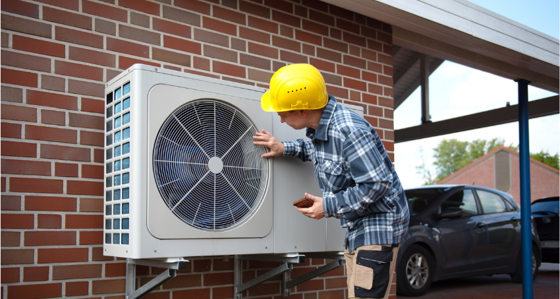
Decarbonising how we heat our homes: yesterday's budget kicked off the journey
12 March 2020
Heat enjoyed a notably high profile in the budget yesterday, testament to how the sector, and the challenges of decarbonising how we heat our homes have risen rapidly up the agenda recently. There was a mixture of policy specifics and statements of longer-term intention, but in general a sense that, with momentum established in power, the net-zero target dictates that decarbonisation of heat will become an area of focus.
Regarding near-term specifics, the Domestic Renewable Heat Incentive (the primary mechanism currently for incentivising low carbon heat in homes) has been extended by a year to the end of March 2022. The Climate Change Levy on gas will be raised in 2022 – 2024 whilst being held for electricity, incentivising businesses to be more efficient in its use. A £270 mn pot under the name Green Heat Networks Scheme will be available after expiry of the Heat Network Investment Project (HNIP), to help heat networks transition to make use of low carbon and waste sources of heat.
In the slightly longer term, a grant scheme will be introduced from 2022 to help households and small business invest in heat pumps and biomass boilers. £100 mn has been budgeted for this scheme, a modest amount compared to the current RHI budget, and small change relative to the total cost of decarbonising heat. This feels like an interim measure to keep the industry ticking over between the end of the RHI and the emergence of a longer term framework. Structuring it as a grant reduces the administrative burden and may be used to target the scheme to maximise impact, for example at off-gas grid properties.
For the longer term, a Green Gas Levy will be consulted on, raising funds to support an increased proportion of bio-methane on the grid. This was trialled in the March 2019 Spring Statement, and is a low-regret step to reduce emissions from heat without requiring substantial consumer engagement. Simultaneously, by reducing the current relative under-taxation of gas, it will improve the economics of alternative low carbon heat sources (explored in our recent Viewpoint Decarbonising Heat).
In a sense, the key announcement is the smallest: allocation of £10 mn to support the design of net zero policies. All of the other measures are constructive but only scrape the surface of the challenge, whereas this points to a more comprehensive policy framework starting to take shape. For businesses this provides the confidence to continue development of business cases and propositions in the heat space whilst the details are still being locked down. It also provides a window to engage in the debate and help shape the future framework. For Government, it provides appropriate space to consider and consult on the various aspects and responses to a knotty policy challenge.
Decarbonising Britain’s buildings and heat will be a long journey, but we are now decisively setting off.
Related Insights

Driving UK decarbonisation in a new policy era
At Baringa’s sixth Green Buildings and Transport Forum in November 2024, we discussed domestic decarbonisation in the context of the new UK government.
Read more
Navigating sustainable retrofit in real estate
Achieving successful sustainable retrofitting in real estate can seem like a complex challenge. Discover how your organisation can unlock the strategic value of retrofitting with our new report, commissioned by Barclays and in collaboration with JLL, Travis Perkins and TrustMark.
Read more
The Great British Retrofit: the scaling of the supply chain to achieve home decarbonisation in the UK
The recent COP28 deal has committed over 200 countries to transition away from fossil fuels, signalling a clear call to action. What are the challenges and opportunities for the UK to meet the decarbonisation targets for the UK housing stock?
Read more
How to scale home decarbonisation
We hosted our third Green Buildings and Transport Forum , bringing together 40 attendees from a range of organisations – from energy suppliers and green financers to installers and innovative solutions providers.
Read moreIs digital and AI delivering what your business needs?
Digital and AI can solve your toughest challenges and elevate your business performance. But success isn’t always straightforward. Where can you unlock opportunity? And what does it take to set the foundation for lasting success?